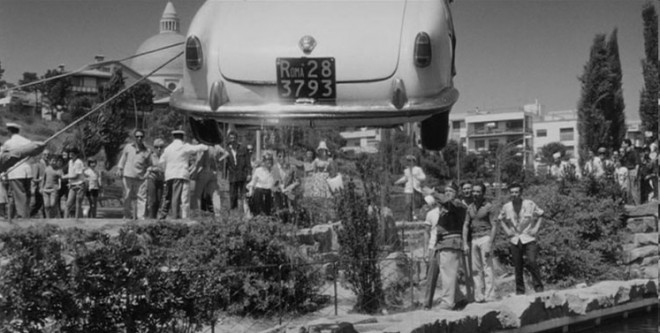OUR DAILY BREAD. “There’s nothing for people to worry about when they’ve got the earth!”
In response to the Hoovervilles that cropped up across America during the Depression, King Vidor made Our Daily Bread. Risking financial ruin, he bankrolled the film himself.
An unemployed city couple, defaulting on their rent, start a cooperative in Arcadia, a rural community. Hope turns to despair, though, when drought jeopardizes the farming operation’s existence. An irrigation project saves the crops.
Vidor’s silent work, including The Big Parade (1925) and The Crowd (1928), is far less interesting than its reputation suggests, but sound sparked something in Vidor. Hallelujah (1929), Street Scene (1931), from Elmer Rice’s play, and especially Our Daily Bread constitute rich Americana. Vidor also superbly directed the Kansas scenes in The Wizard of Oz (1939), including the one in which Judy Garland sings “Over the Rainbow”—a film, regrettably, that Victor Fleming makes leaden in the Land of Oz.
Influenced by Soviet cinema, Our Daily Bread’s passage showing men at work in an effort to irrigate the land, in which their naturally synchronized labor exudes their common purpose and shared destiny, astounds. Vidor’s film lacks the brilliance, certainly, of Joris Ivens’s Dutch documentary The New Earth, released the same year, but its finale is sweeping.
One thing more enriches the film: a gloriously perverse subplot in which a stray blonde bombshell entices the leader away from both his marriage and his commitment to the cooperative. This Jean Harlow lookalike suggests the embodiment of commercial filmmaking and its temptations. Our Daily Bread is also an allegory, then, on the struggle by progressive American artists to assert and sustain their commitment to socially worthwhile expression.
